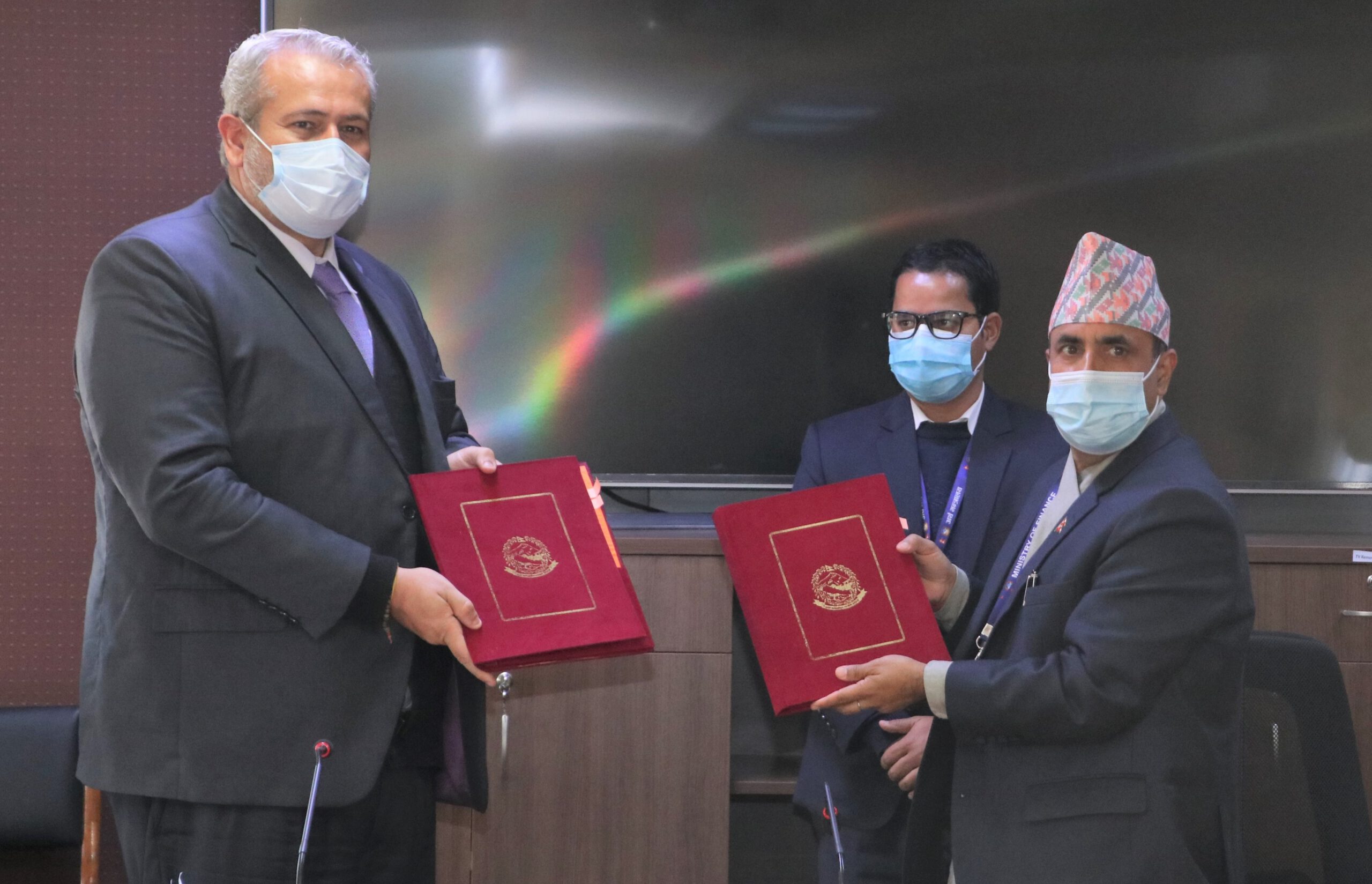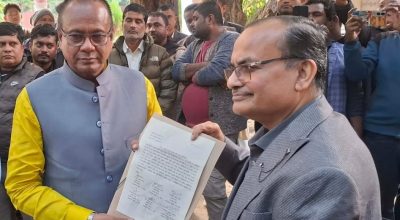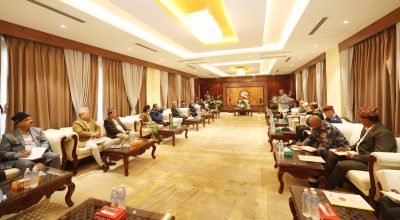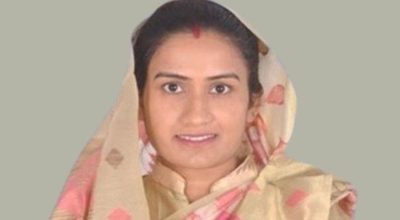
KATHMANDU, Dec 22: The Government of Nepal and the World Bank have signed a $80 million (around NPR 9.3 billion) project to bolster Nepal’s agriculture sector by strengthening rural market linkages and promoting entrepreneurship while creating jobs to support post-COVID-19 recovery.
The Rural Enterprise and Economic Development Project (REED) project was signed Monday by Finance Secretary Sishir Kumar Dhungana on behalf of the Government of Nepal, and the World Bank Country Director for Maldives, Nepal, and Sri Lanka, Mr Faris Hadad-Zervos.
“We thank the World Bank Group for providing crucial support with this project which will enhance the access of rural enterprises and small-hold producers to markets and institutional buyers,” stated Sishir Kumar Dhungana, Secretary, Ministry of Finance. “Promoting agribusiness competitiveness with sustainable market linkages will be critical to boost Nepal’s post-COVID recovery.”
The project aims to facilitate productive partnerships between rural producer organizations and private-sector buyers to add value, create jobs and foster sustainable inclusion into, and development of, higher-value domestic and foreign value chains.
The project focuses on five economic corridors covering Provinces 1, 2, Bagmati, Gandaki, Lumbini and Sudurpashchim that offer opportunities for successful linkage activities of the rural entrepreneurs to be supported by the project. REED will work with provincial and local governments, intermediary organizations and small and medium enterprises to build capacity in the agriculture sector and strengthen the entrepreneurship ecosystem.
The project will also finance investments in municipal agriculture centers and value chain infrastructures to ensure the availability of inputs for farming as recovery actions from COVID-19. The project will use labor-intensive Cash for Work mechanism, to the extent possible, in short-term public works.
“The project brings a unique opportunity to transform Nepal’s agriculture sector and spur economic recovery from the pandemic’s fallout by bolstering rural enterprises and creating local jobs and opportunities,” said Faris Hadad-Zervos, World Bank Country Director for Maldives, Nepal and Sri Lanka. “By fostering meaningful collaboration among various actors, the project can promote Nepali agriculture products globally by stimulating many niche sectors such as coffee, tea, fruit and medicinal products, among others.”
The project supports the Government of Nepal’s Agriculture Development Strategy 2015–2035 that aims to create a sustainable, competitive, inclusive and resilient agricultural sector that drives economic growth with private sector participation.














